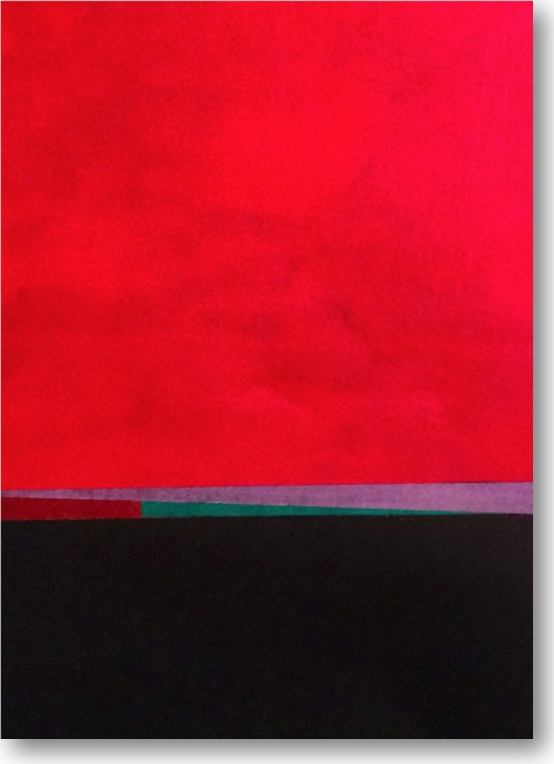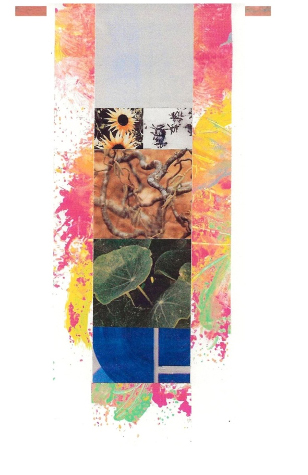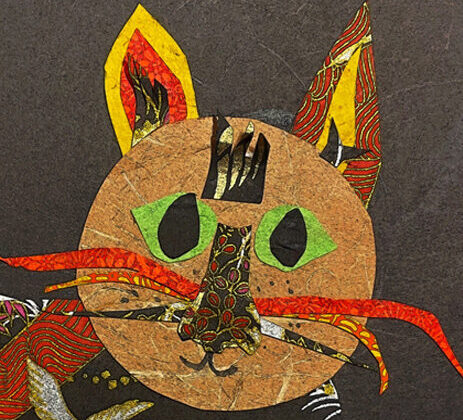Gary LeBel
Bodies of Water
1. AT TYBEE
“There is surely much that is grander and more beautiful in nature, but this is intimately familiar to me, related by blood, and even more.” — Friedrich Nietzshe, Human, All Too Human
With a softness no device can measure, summer twilight falls on the cobalt sea and the pale tan beach. Offshore, shrimp boats rise and fall with the swells, the last of the sunlight glinting off their cabins, decks and booms like a noiseless clash of swords. A cloud of gulls surrounds them seeking, as all creatures do, the path of least resistance, a full belly achieved with a pittance of effort. Nowhere does sunlight bathe the sea in quite the same way as here at Tybee, and though it may shine more luminously along another coast, beauty is not to be sliced by thought into better or best, for it’s always whole and indivisible to those who admire it.
After a long day of unblemished skies and pleasure, already the moonflowers are beginning to open near the bordering dunes. It’s the hour when all the arts seem superfluous to nature, and we seem to sense the thing-in-itself, though it’s the rose we can never pick. The body responds in gestures to sensations it cannot translate while the mind stumbles as it seeks a true word to serve as their template.
Along the evening beach, youth blooms with the moonflowers in the trim, athletic bodies of the young men and women who linger here. Their canvas is like a scene in Poussin, a drama of poses rife with color and movement, emotions radiant in scarlet and blue and, in bright orange tints, their intimacy and laughter, hope and exuberance glow.
The scissor-cut shadows of the day have become faint penumbras that drop from salt-weathered wood and stone like murmurs. As I scan the ocean I notice a tribe of dark objects gliding slowly offshore with the waning tide: dolphins.
They form a kind of loose circle, and at the center swim their children. There is no alarm, no fear in their pace, no timepiece they must obey for they are the ocean’s abiding heart, its conscience and the ganglia of its intelligence: ah to be so free, to embody a form made smooth and perfect as a wave, to have played the heroes in Arion’s myth, to have language and proper names, to be close-knit with one another, and with their high intelligence wage no animosity toward those who’ve stolen their children, who’ve slaughtered them when they chance to come between men and their profits.
And like that magnificent blade of light that falls across Caravaggio’s The Calling of Saint Matthew, they flow together toward wherever the tide and the night is leading them.
With its slow respiring breaths, the sea rolls over the sand touching an earth of which only its shores and brackish rivers, its winding estuaries have an inkling, but knowing more it would surely recoil, its tides refuse to rise and set afloat our perilous civilization.
* * * * * * *
The dolphins are gone now; fossils the sun buried in my shoulders and bones glow warmly. Someday someone, perhaps you, Reader, will write the tale of another Ahab, one who never meets a great white whale but only marvels at its pliant, majestic flukes as they drive its massive flanks down into the cold, exhilarating depths, not to hunt, not to breach nor deliver up human vengeance, but to sing of the wonder of life, of buoyancy, of its freedom beneath the waves . . .
and of the memories of strange new coasts of which its brethren once sang, of morning bays and beaches eons before our impress appeared over their silent, glittering sands.
Its talons need but a moment for the redwing to achieve its balance on a cattail but the years and years it takes an eye to finally notice
As a day by the sea is ending,
bleached and salt-stung colors
deepen with evening,
when even sound itself is hastening
toward what is leaving
Derek Walcott wrote of '. . . the sea's blue door. . .' which makes me wonder, its deadbolt's lock, have we lost its key?

Notes:
(1) Nietzsche translation by Graham Parkes
(2) Image: Evening Beach (collage/montage c. 1980s)
(3) Tybee Island lies a few miles off Savannah, Georgia
(4) Derek Walcott’s line is from Tiepolo’s Hound (2000)
2. KWEE-MO
: bhă :
: bhĕ :
'... I bring you a flute from the throat of the loon' –Michael Ondaatje, Women Like You
The trio glides in tandem yet maintains several yards distance between them as they pass through the narrows where I swim in place.
Perhaps a third full-grown, the young ones suddenly dive, and when their jet-black heads emerge downstream, they call out to one another, one piping bhă to the other’s bhĕ, sounds made deep in the throat as if every inch of their blood and bone required it.
Bringing up the rear, their guardian indulges them with all the time and space they need to enjoy the thrill and wonder of being loons.
As I continue to tread water, their guardian neither dives nor looks my way as it passes, signaling either trust or faith in its own formidable powers to elude me should I stray too close. Dark and mysterious relics of a much older earth, ‘they come’, as Odysseus Elýtis has written, ‘of good stock’, yet science is still uncertain as to which door in evolution they passed through, or how far back their daisy-chain reaches.
Some weeks ago oceanographers announced their belief that dolphins possess proper names. Who is surprised by this? And what is this bhă and bhĕ these young loons are speaking if not the words of a language so intricately woven with time and earth that it entirely eclipses our own whose arrogance often denies even the possibility of theirs . . . and so we slam shut a door that Native Americans had never thought to hang.
All three birds have disappeared beneath the lake. A light breeze has started to blow, rousing the white birches to a froth of fluttering. After fifty years, how sweet these waters still taste, and how hard it is to let go.
Leaves grow still
but the lake keeps moving
of its own volition
as when tendons ripple
over a stallion's flanks
Note:
(1) “Kwee-mo’ is the Algonquin word for “loon.”
3. SUDDENLY
So it’s early evening, made all the more languid by the indolence of jetlag and the joy of having ‘put away/My labor’ as Emily sang. All of the rental car’s windows are rolled down to catch the salubrious sweetness drifting in from Casco Bay, and then the passing fields and pastures, the wild, fragrant musk of darkening woods. You drive the speed limit, perhaps a little under; the traffic’s light and leisurely, more polite than from where you came.
Your hands on the wheel know the way from the airport by the hearts in their palms, every exit, curve and hill, every slope and passing lane of one’s native place. . . and speaking to your head they say, “Now let the reveries begin”. . . and they do.
After leaving the interstate come the state roads and then the county roads, some with nicknames only the locals know; you breeze past sweet-smelling stands of spruce and pine, past fresh-mown hayfields spread with an amber light, and now and then you slip past a quiet town of modest Capes, white or blue or grayish blinks in the passing blur of rural Maine.
You cross over a low bridge where two rivers merge into one, their brown, silt-laden currents hastening to the sea’s embrace. The bridge divides its village into two where not a soul is about on either side––
I come here often
when I'm a thousand miles south
and perhaps aside from its rivers
I come for marshlands more lushly green
than I've ever seen
Now the woods are turning a deeper blue with bits of last light in their topmost leaves and, like a clutch of antsy cousins kept in too small a room while their parents play at cards,
mind's overrun
with stories, places, beloved faces
that now are Shades, and having aged
a part of me's conceding
to where the 'Horses' Heads' are leading. . .
and an unaccountable longing breaks over thought with a powerful surge. . .and with the coming of night, the dank earthen smells of shadows drift in with a soft rain of crickets,
and suddenly from your shoulders a weight is lifted as if the chainmail you’ve been wearing fell to your feet, for the hearts in your hands to which you’ve paid so little attention say, “Look, you’re almost there,” and you notice that you’re less than a mile from the gravel road into which you’ve turned so many times before,
where a white wooden sign with silver letters nailed to an old pine bears your family’s name, and you’re home . . . and at last you wake . . . .

Notes:
(1) Quotes derive from Emily Dickinson’s “Because I could not stop for Death” (#479)
(2) Collage: Personal Banner
About the Author

Gary LeBel is an artist-poet living in the greater Atlanta area whose poems have appeared in journals throughout the USA, the UK, Japan, and India. He believes that art, or anything else worth doing, is a life-long pilgrimage.
